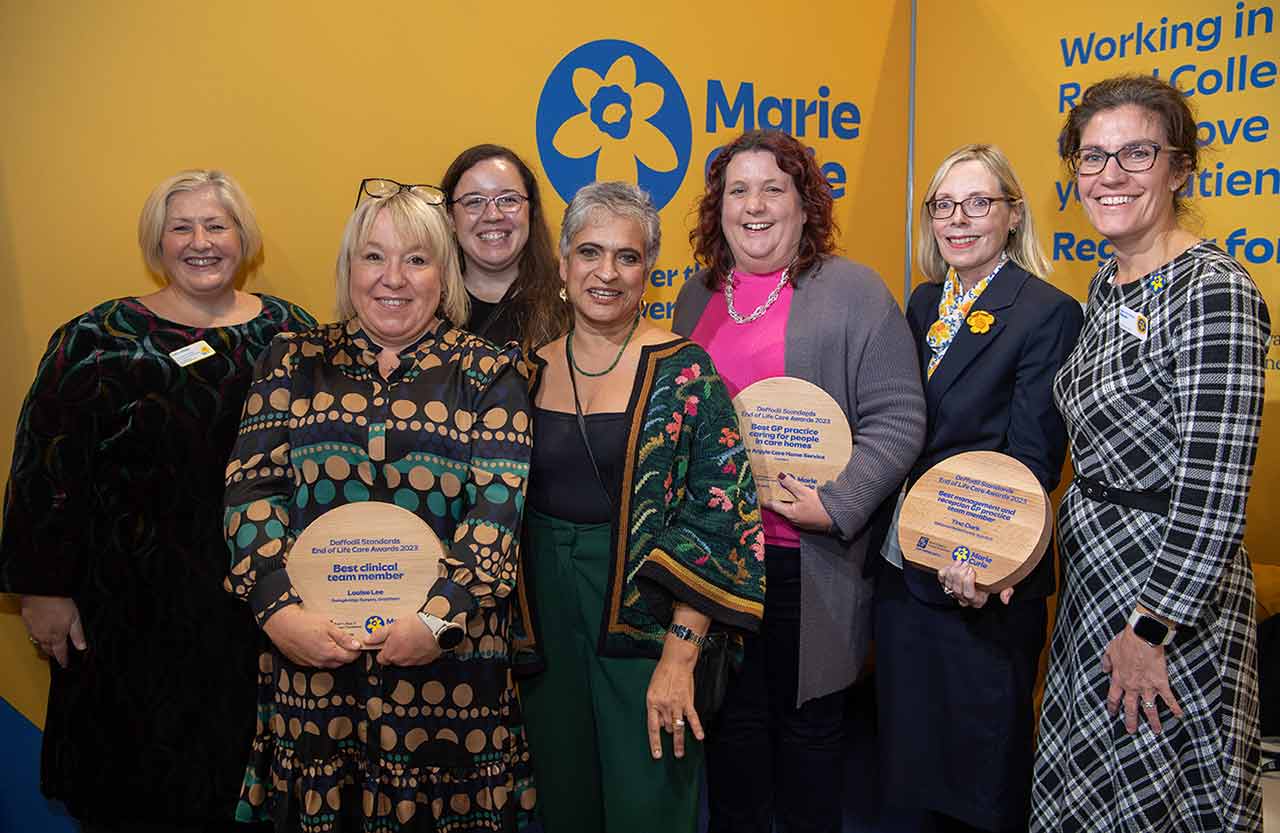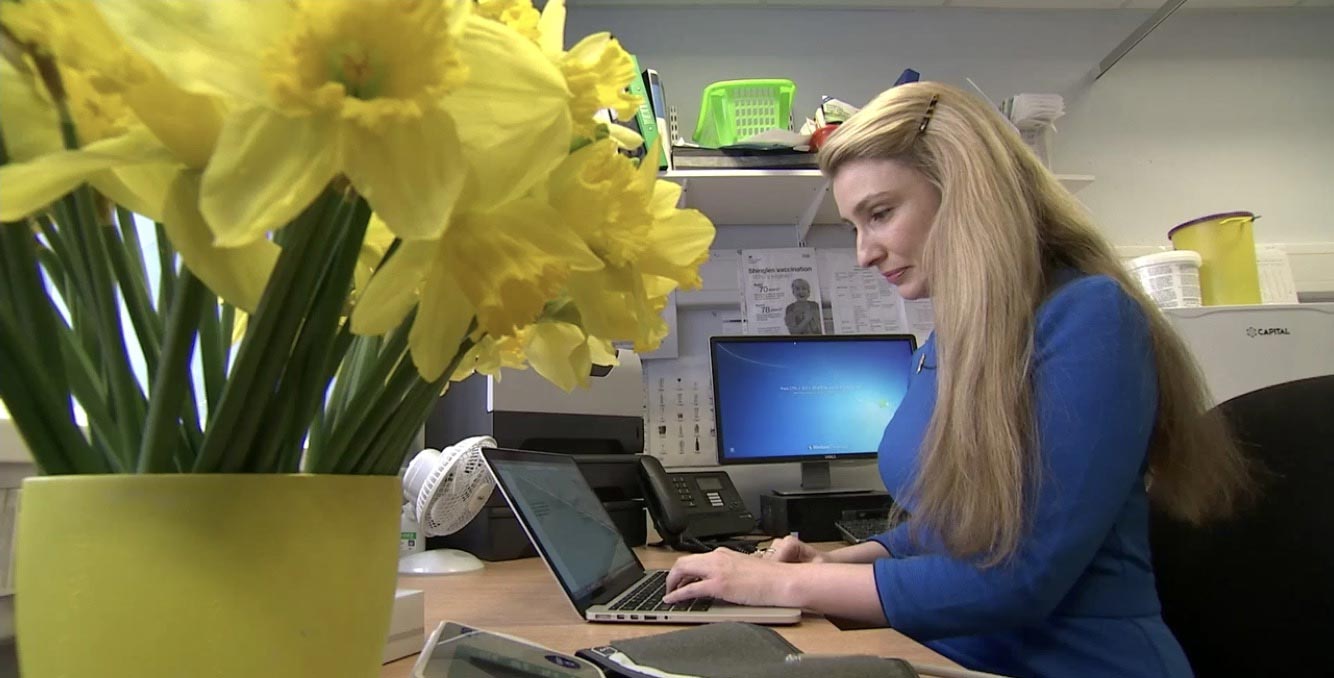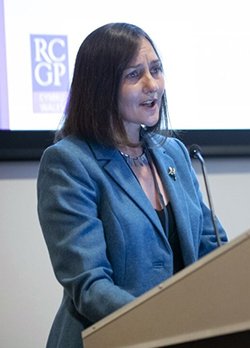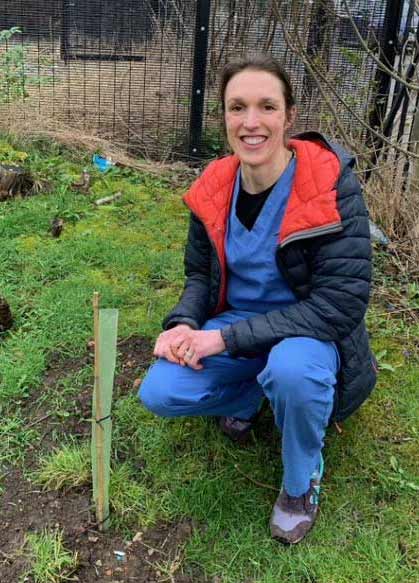

The complexity of prison care
The population of the UK is ageing and if recent mortality trends continue, it is estimated that 160,000 more people in England and Wales will need palliative care by 2040 - and GP practices will be an intrinsic part of delivering this vital service
Responding to this, the College developed The Daffodil Standards - a joint project between the RCGP and the UK's leading end of life charity Marie Curie aiming to standardise delivery of high-quality palliative care throughout general practice.
First developed in 2018, the Standards have sought to provide practices with the support and guidance they need to do the best for their patients at or nearing the end of their lives. Since their launch, 1,900 practices from across the UK have signed up with an estimated 13.2 million patients potentially benefitting. The eight Standards include measures to help practices with the early identification of patients with palliative and end-of-life needs, carer support before and after death, and treatment based on the unique needs of the individual.
Now, the hard work and dedication of these practices to deliver excellent end of life care is being recognised, with the first ever Daffodil Standards Awards being held at the College's annual conference in Glasgow last year.

RCGP and Marie Curie Clinical Lead for Palliative and End of Life Care, Dr Catherine Millington-Sanders, was ‘delighted by the overwhelming number, variety and excellent standard of entries’:
“Submissions showcased the amazing developments many practices have made, and the tangible benefit this has had for patients and their families,” she said, “the judging panel, which included Kamila Hawthorne and Ursula Mason (Chair of RCGPNI), deliberated at great length to pick winners as the entries were all of such a high calibre.
“There was fantastic, ambitious talent, including submissions from two care homes which prompted us to create a dedicated category."
The winners included Dr Lindsey Raeburn for GP of the Year; Portsdown Group Practice for GP Practice Team of the Year; Louise Lee for Clinical Team Member; Tina Clarke for Management and Reception Team Member; Argyle Care Homes Service for Care Home of the Year.
All winners demonstrated the highest levels of dedication and passion to end-of-life care for their patients. Their work is a shining example of going above and beyond for patient care. There will be a separate ceremony, held at the RCGP's headquarters at 30 Euston Square this summer, for Dr Lindsey Raeburn and the Portsdown Group Practice as they were unable to attend the College's annual conference.

Commenting on the winners, Dr Millington-Sanders said that they show how GPs and their teams, can diagnose an issue using the Daffodil Standards tools and even small changes can make an ‘enormous difference’ to patients:
“It could be as simple as deciding that you're going to ensure a robust system to make contact with families of patients who have died or as extensive as developing a practice Standard Operating Procedure covering all Standards to enable large-scale system change. Ultimately, it's all about their personal touch, making changes relevant to their practice population and showing their commitment to caring for people nearing the end of life."
Reflecting further on why the Daffodil Standards are so important more generally, she continued:"Evidence shows there is variation in end-of-life care across the UK and within general practice. This may in part be due to system and capacity challenges, but there are always things we can do in our practices, to improve our care for patients and families affected by serious illness, end of life care and bereavement. We developed the Standards to address this and to ensure that all members of the practice team have a clear framework, supporting them to self-assess and identify what works best for their patients and families as well as what bereavement support they can offer people affected by grief.
"The value of palliative care for patients and their families cannot not be understated. It requires versatility, sensitivity and compassion, drawing on knowledge from all aspects of a patient's medical history and their lived experience. It requires deep medical understanding and inter-personal skills. That’s why it’s been so important to recognise good practice and gives the opportunity to celebrate our profession and inspire each other."
The Daffodil Standards were developed with multiple partners with a robust review process. Now one in five practices are signed-up across the UK. They continue to be developed based on experience and emerging evidence and are currently undergoing an independent review by Cardiff University.
As general practice, and wider NHS services, are under significant pressure to meet the complex needs of patients nearing or at the end of their lives, Dr Millington-Sanders believes the Daffodil Standards will be increasingly important in supporting practices to consistently deliver a population-based approach and enabling high quality, end of life and bereavement care.
"We know GP teams are committed to doing the absolute best for patients, despite being under sustained, significant pressures. These awards were a wonderful morale boost, recognising the impressive and valuable care that practices are achieving."
Read more
Thank you for your feedback. Your response will help improve this page.



